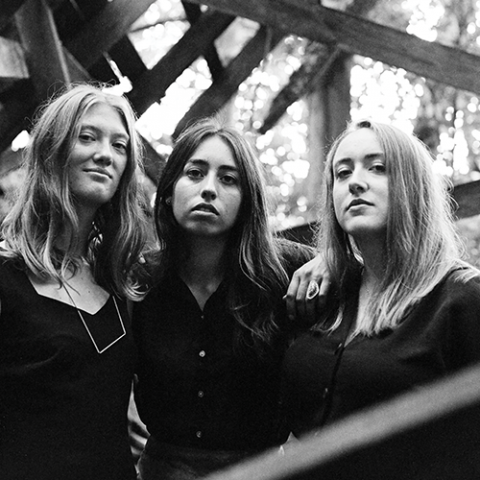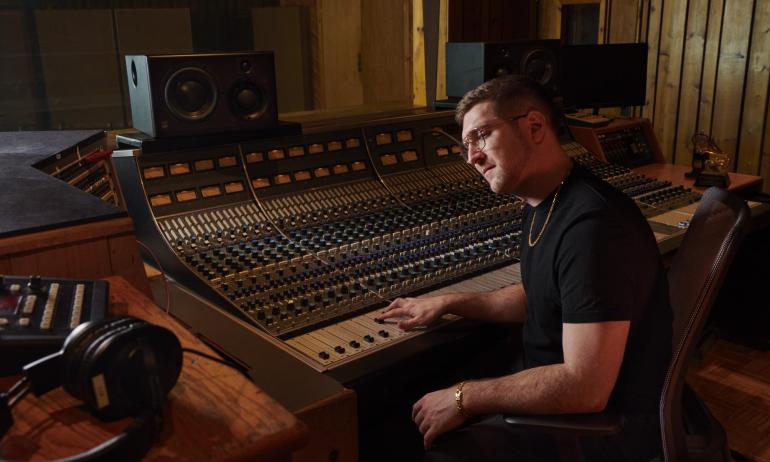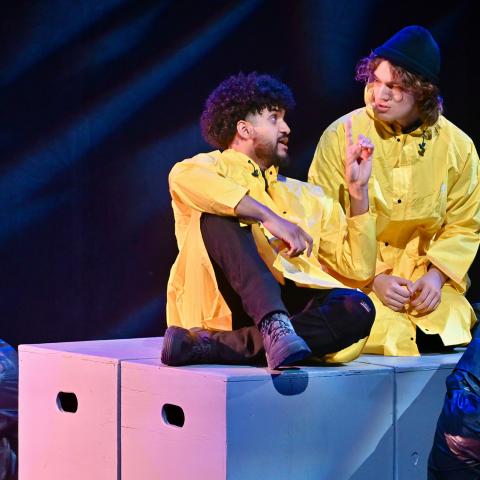Lula Wiles

The women in the band, which formed at Berklee and released its label debut, What Will We Do, in early 2019 through the iconic Smithsonian Folkways Recordings, have known each other since childhood. All attended the same summer fiddle camp in their home state of Maine.
Once at Berklee, one gig led to another, and the synergy between band members Eleanor Buckland ’15 (vocals, guitar, fiddle), Isa Burke B.M. ’16 (vocals, guitar, fiddle), and Mali Obomsawin ’14 (vocals, acoustic bass) was so evident that they realized they had something worth continuing. Being in a band, Obomsawin says, “sort of sneaked up on us.”
From there, they just needed a band name, and hit on the idea of "the Wiles," until learning the name had already been taken. They ended up adding "Lula" as an homage to the Carter Family song "Lula Walls."
Instead of a conscious choice to band together, it was the music that kept driving them forward. Matt Glaser, artistic director of the American Roots Program, mentored the group and helped get them spots at major folk festivals across the country, from Philadelphia and Newport folk festivals to Wintergrass Music Festival in Bellevue, Washington. “Matt Glaser taught me how to think about music in a deeper way,” Burke says, adding that he helped open up a new musical language for her. That language, she says, “was one of the best things I learned at Berklee—it just lifted the veil.”
Their road to the craft of songwriting was a similar mix of kismet and right time, right place. “I only started writing songs at 19,” Buckland says, which happened to coincide with the arrival of Bonnie Hayes as the new chair of the Songwriting Department. “Bonnie rocked my world,” she says, citing Hayes as someone who instilled in her a foundational confidence as an artist that has only grown since. “When I’m struggling with writing songs, I remember what she once said: ‘Oh, you want to be a songwriter? Just write songs.’ You just have to put in the time, put in the work.”
After self-releasing an original album in 2016, the band’s writing practices shifted toward even deeper collaboration. For what would become What Will We Do, the trio spent time in Vermont at a writing retreat. This kind of collective writing, Obomsawin says, “requires vulnerability, but there’s also a selflessness, and a willingness to be able to say, ‘I’m giving up some of the agency, some of the control.’ Being in a band is a safe place to ask for help.”
Lyrically, they focused on their experiences growing up in Maine, from dealing with heartbreak to questioning the American Dream. The results were songs that expertly blend traditional structures with modern perspectives, such as the countrified takedown of toxic masculinity in “Nashville, Man,” or the banjo-inflected “Shaking As It Turns” that riffs on Woody Guthrie’s famous tune “This Land Is Your Land.”
The writing experience proved alchemical for the band, as they brought their songs to a label showcase at Folk Alliance International in 2018, and, amidst a few offers, ended up getting the attention of Smithsonian Folkways Recordings, a label boasting artists such as Guthrie, Pete Seeger, and Lead Belly. There may not be a singular Lula. But for a band with such a shared history and openness to writing together, its members have quite literally made a name for themselves—and it’s one you’ll do well to remember.




